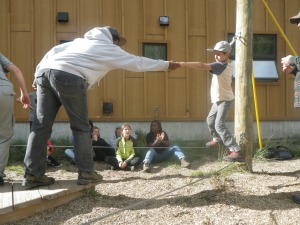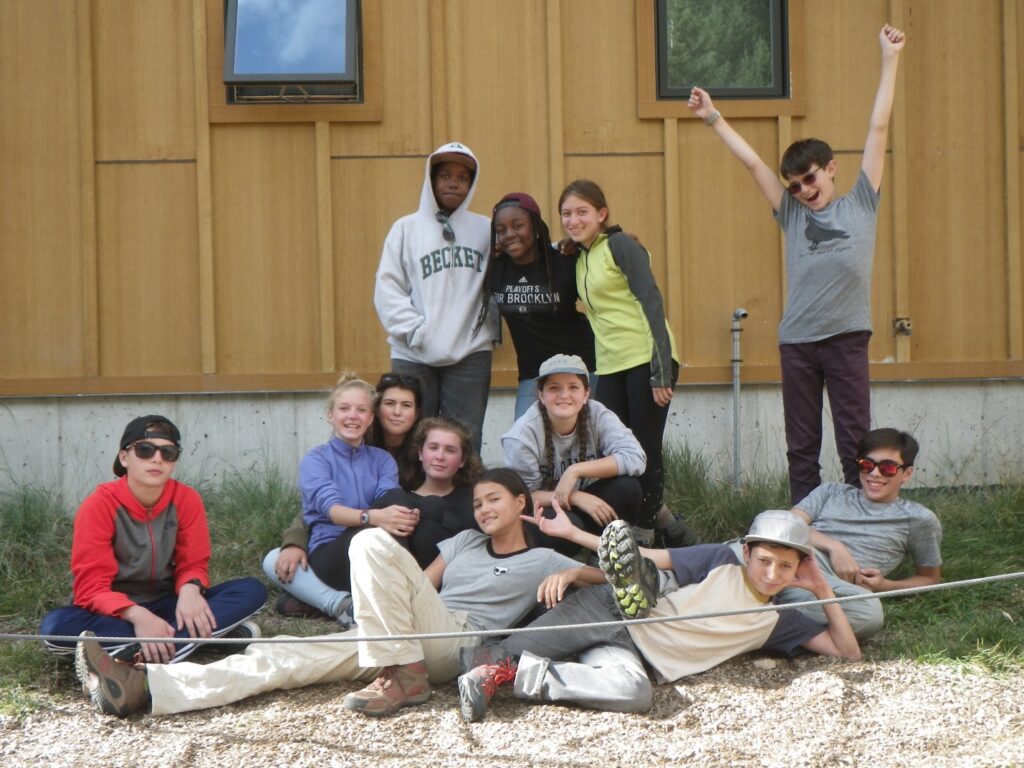
This past October, I had the pleasure of working with a group of 8th grade students from Berkeley Carroll, a school in Brooklyn, NY. As an environmental field educator in the Tetons, I traditionally teach middle school students from the Wyoming, Salt Lake City, and Idaho areas. A week here at the Teton Science Schools usually provides a unique opportunity for students to learn about the science behind the Greater Yellowstone Ecosystem through outdoor experiences. However, Berkeley Carroll’s teachers had a different goal in mind for their students.They asked for a focus on TSS’s lesser-known focus areas: leadership in community, and connection to place. Instead of teaching the scientific method and focusing on how to ask and answer scientific questions, we were tasked with facilitating a week focused on climate change, its impact on our communities, and stewardship.
 The students arrived at the airport late at night on Monday. We drove them to the TSS campus in the dark, the Teton Range towering over the sagebrush flats of Jackson Hole hidden from their view. During orientation they asked questions like “Are we going to hike?” or “Will we see animals?” My responses were short, “Yeah, of course we are,” forgetting where the students had just come from. For these students, TSS provided a rare wilderness experience, a chance to step outside of their enclosed classroom. For them, “Will we see animals?” was an important and exciting question.
The students arrived at the airport late at night on Monday. We drove them to the TSS campus in the dark, the Teton Range towering over the sagebrush flats of Jackson Hole hidden from their view. During orientation they asked questions like “Are we going to hike?” or “Will we see animals?” My responses were short, “Yeah, of course we are,” forgetting where the students had just come from. For these students, TSS provided a rare wilderness experience, a chance to step outside of their enclosed classroom. For them, “Will we see animals?” was an important and exciting question.
The week was filled with place-based education and experiential learning. We guided the groups through Grand Teton National Park, teaching them about leadership and building their sense of place. Behind the cliquey, self-conscious 8th grader was a sense of wonder for the environment beyond the borders of their city. It was a week filled with breaking barriers, as students connected, shared ideas with each other, and built new relationships. Students saw the stars for the first time, realized how small we humans really are, and used the new vantage to discuss our place on earth. As we talked about how climate change is affecting Brooklyn and surrounding communities, we brainstormed how 8th graders can be leaders and stewards, how they can think globally and act locally.
 Here at TSS, placed-based education is a daily focus. We aim to get students involved in and excited about science and the environment, and to inspire them to make a difference in their communities. When an urban school like Berkeley Carroll comes to TSS, those of use that work as instructors truly recognize the importance of our work.
Here at TSS, placed-based education is a daily focus. We aim to get students involved in and excited about science and the environment, and to inspire them to make a difference in their communities. When an urban school like Berkeley Carroll comes to TSS, those of use that work as instructors truly recognize the importance of our work.
For me, it was a memorable week because it reminded me of my own upbringing in upstate New York. New York is my home; it is a place for which I have a deep sense of love, pride, and community. Being from the same state as this school group, I felt even more of a connection and a sense of home. I was driven to put even more of an effort into connecting with the students and designing good lessons for their time in the Tetons. I know the group I taught had an impact on me; I can only hope that I helped them learn and think about the world and their places in it in a new way.


